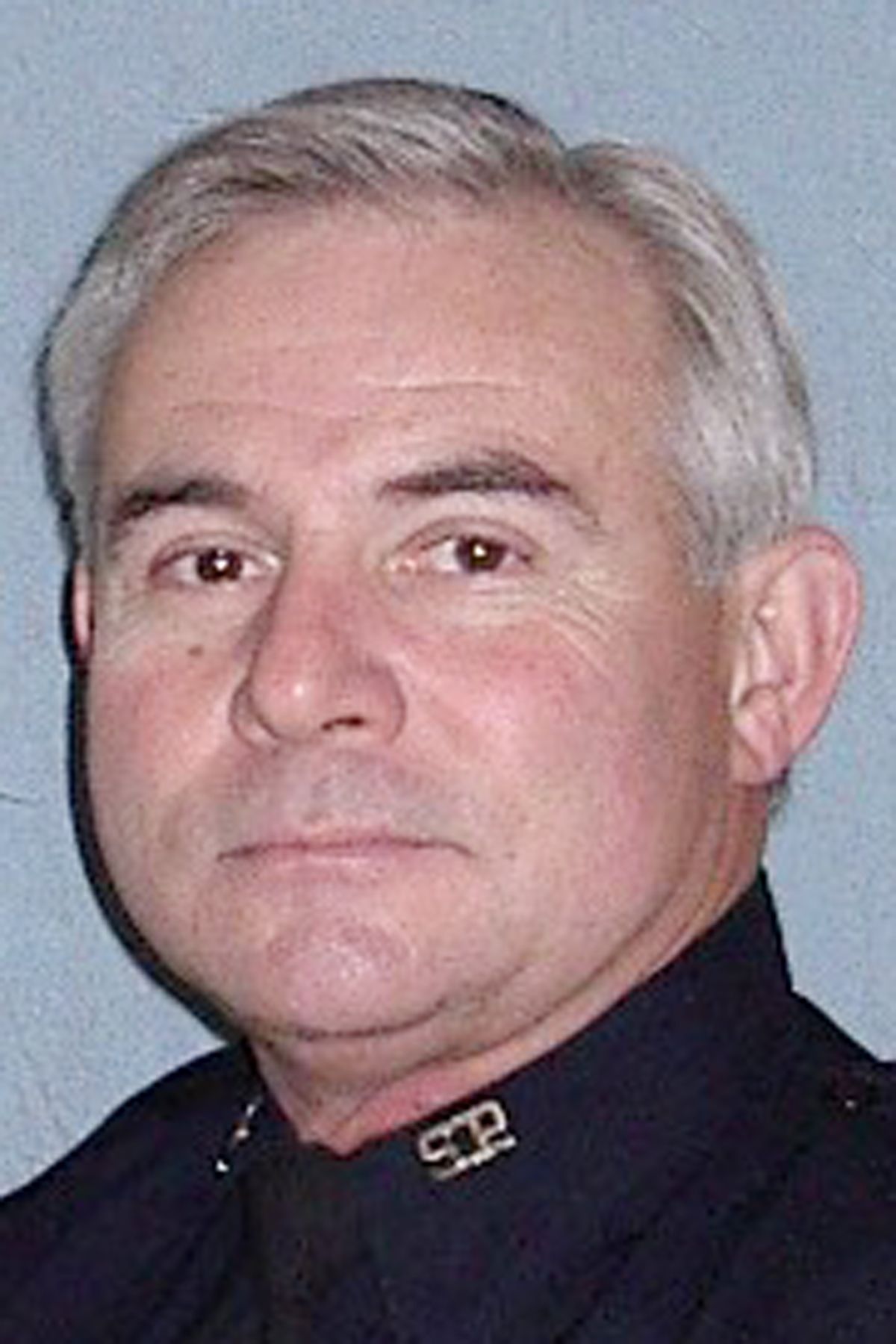Officer has lengthy, varied police career

Karl Thompson was at the top of his basic training academy class in 1997 when he was hired at 49 to join the Spokane Police Department’s uniformed division.
Thompson brought a wealth of law enforcement experience in a career that saw ups and downs before his federal indictment, announced Monday, in the death of mentally ill janitor Otto Zehm in 2006.
As a police officer in Los Angeles in the 1970s, Thompson’s assignments included gangs and violent extremist groups. He was trained as a hostage negotiator and SWAT officer, he has said.
He moved in 1979 to Kootenai County, where he became a sheriff’s deputy and held at least four jobs related to law enforcement, including sheriff’s captain.
“This is a pretty unusual guy,” said his attorney, Carl Oreskovich. “He’s done a lot of things that require a lot of intelligence and training.”
Now 61, he is also someone who has aimed for the top.
Former Kootenai County Sheriff Pierce Clegg hired Thompson from the Idaho State Police in 1989 to serve as captain in charge of patrol, detectives, marine operations, search-and-rescue and snowmobile patrols.
He quit that job in 1995 and was working as a juvenile probation officer when he ran, unsuccessfully, for sheriff as a Democrat against Republican Clegg a year later.
Oreskovich did not want Thompson to be interviewed. Clegg was unavailable for comment this week.
At the Spokane basic training academy in 1997, Thompson was honored for highest achievement in scholarship and pistol marksmanship. He also was best overall in firearms.
Spokane did not allow lateral transfers, so Thompson was required to undergo basic training again, Oreskovich said.
Three years ago, Thompson was one of 43 people to apply for Spokane police chief – the appointment that went to Anne Kirkpatrick.
His record in Spokane includes a 2002 lifesaving award for pulling a suicidal man away from the railing of the Monroe Street Bridge.
He is a hostage negotiator, has worked on a crowd control team and has been a member of the critical incident crisis team.
In 2004, he was cleared in the shooting of a suspect who was brandishing a handgun and aimed it at another officer. At the time, police Chief Roger Bragdon said Thompson was “very well-trained technically and old enough to be level-headed.”
Use-of-force records showed that Thompson deployed his Taser at least six times prior to the Zehm incident to get compliance from people who were resisting arrest. Police records showed he was found to have acted within policy in each case.
They included one involving a juvenile threatening to injure staff members with a telephone receiver at a crisis residential facility. Two other incidents involved men with knives. Thompson also used his Taser to stop a handcuffed woman with bipolar disorder from kicking officers. The woman was resisting an arrest on an involuntary mental health commitment after she told roommates she was going to get “bloody.”
Thompson used his Taser to restrain Zehm, which police commanders found to be justified.
Oreskovich declined comment on Thompson’s record of use of force.
Thompson began his career in the U.S. Army in 1965, serving in the Special Forces in Germany and the 173rd Airborne Division in Vietnam. He was decorated with a bronze star and two commendations, Oreskovich said.
As a captain in Kootenai County, he earned a bachelor’s degree in justice studies in 1992 from Lewis-Clark State College and attended the FBI Academy and Command College, including a program in dignitary protection.
In one incident, Thompson and two other investigators reportedly told racists at a skinhead gathering in California in 1989 that they were from CBS News to gain access, according to one of the investigators involved.
Thompson was involved in the community as a member of the United Way board for several years and started a running program for at-risk youths in the mid-1990s.
“I think his career speaks for itself,” Oreskovich said. “He is someone who is respected and takes pride in his career, takes pride in his demeanor and takes pride in his experience.”
“I think he carries himself in that way.”